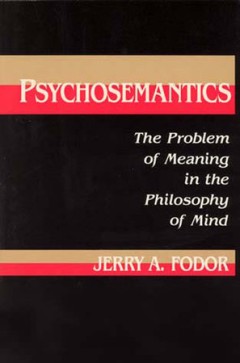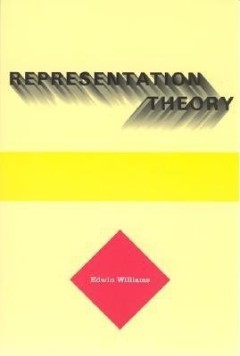Filter by

Making Sense of "Bad English" : An Introduction to Language Attitudes and Ide…
Why is it that some ways of using English are considered "good" and others are considered "bad"? Why are certain forms of language termed elegant, eloquent or refined, whereas others are deemed uneducated, coarse, or inappropriate? Making Sense of "Bad English" is an accessible introduction to attitudes and ideologies towards the use of English in different settings around the world. Outlining …
- Edition
- -
- ISBN/ISSN
- 9780429328343
- Collation
- 190 p
- Series Title
- -
- Call Number
- 400 PET m

The Aesthetics and Politics of Linguistic Borders : Multilingualism in Northe…
This collection showcases a multivalent approach to the study of literary multilingualism, embodied in contemporary Nordic literature. While previous approaches to literary multilingualism have tended to take a textual or authorship focus, this book advocates for a theoretical perspective which reflects the multiplicity of languages in use in contemporary literature emerging from increased glob…
- Edition
- -
- ISBN/ISSN
- 9780429260834
- Collation
- 344 p
- Series Title
- -
- Call Number
- 400 AES

Reconfiguring human, nonhuman and posthuman in literature and culture
The time has come for human cultures to seriously think, to severely conceptualize, and to earnestly fabulate about all the nonhuman critters we share our world with, and to consider how to strive for more ethical cohabitation. Reconfiguring Human, Nonhuman and Posthuman in Literature and Culture tackles this severe matter within the framework of literary and cultural studies. The emphasis of t…
- Edition
- -
- ISBN/ISSN
- 9780429243042
- Collation
- 400 p
- Series Title
- -
- Call Number
- 400 REC

Foundational principles of task-based language teaching
Buku ini memperkenalkan konsep pengajaran bahasa berbasis tugas (TBLT) kepada para pembaca, yaitu pendekatan pengajaran dan pembelajaran bahasa yang berpusat pada peserta didik dan berdasarkan pengalaman. Berdasarkan premis bahwa peserta didik bahasa dapat meningkatkan penguasaan bahasa kedua (SLA) mereka melalui keterlibatan dalam tugas-tugas komunikatif yang memaksa mereka untuk menggunakan b…
- Edition
- -
- ISBN/ISSN
- 9781003039709
- Collation
- 1 online resource.(214 pages)
- Series Title
- -
- Call Number
- 418.0071 EAS f

Prolegomenon to a Theory of Argument Structure
Karya ini merupakan puncak dari kolaborasi selama delapan belas tahun antara Ken Hale dan Samuel Jay Keyser dalam studi sintaksis unsur leksikal. Karya ini menguji hipotesis bahwa perilaku unsur leksikal dapat dijelaskan dalam bentuk sejumlah kecil prinsip yang sangat sederhana. Secara khusus, unsur leksikal diasumsikan memproyeksikan konfigurasi sintaksis yang didefinisikan hanya pada dua rela…
- Edition
- 39
- ISBN/ISSN
- 9780262274722
- Collation
- 1 online resource (x, 281 pages)
- Series Title
- Linguistic Inquiry Monographs
- Call Number
- 401.4 HAL p

A Prosodic Model of Sign Language Phonology.
Bahasa Indonesia: Lebih unggul daripada buku lain tentang subjek yang pernah saya lihat. Saya dapat melihatnya digunakan sebagai teks kelas atau referensi untuk teori terkini dalam fonologi bahasa isyarat. Buku ini dimaksudkan sebagian untuk menyediakan titik masuk bagi ahli bahasa dan ilmuwan kognitif yang tidak mengetahui bahasa isyarat ke dalam studi fonologi bahasa isyarat. Pada saat yang s…
- Edition
- -
- ISBN/ISSN
- 9780262269261
- Collation
- 1 online resource (396 pages).
- Series Title
- Foundations of Computing
- Call Number
- 419.56 BRE p

Psychosemantics; The Problem of Meaning in the Philosophy of Mind
Psikosemantik mengeksplorasi hubungan antara teori psikologi akal sehat dan masalah-masalah yang menjadi pusat semantik dan filsafat bahasa. Berdasarkan dan memperluas karya Fodor sebelumnya, buku ini menempatkan psikologi rakyat pada landasan teori yang kokoh dan membantah ancaman eksternalis, holis, dan naturalis terhadap posisinya.
- Edition
- -
- ISBN/ISSN
- 9780262272919
- Collation
- 1 online resource (187 pages .)
- Series Title
- Explorations in Cognitive Science
- Call Number
- 401.43 FOD p

Readings in machine translation
Bidang penerjemahan mesin (MT) -- otomatisasi penerjemahan antara bahasa manusia -- telah ada selama lebih dari lima puluh tahun. MT membantu mengantar masuk bidang linguistik komputasional dan telah memengaruhi metode dan aplikasi dalam representasi pengetahuan, teori informasi, dan statistik matematika. Sumber daya yang berharga ini menawarkan artikel berbahasa Inggris yang paling signifikan …
- Edition
- -
- ISBN/ISSN
- 9780262280679
- Collation
- 1 online resource (xv, 413 pages) :
- Series Title
- -
- Call Number
- 418.02 NIR r

Relators and Linkers; The Syntax of Predication, Predicate Inversion, and Cop…
Dalam Relators and Linkers, Marcel den Dikken menyajikan sintaksis predikasi dan inversi predikat di sekitar subjeknya, dengan menekankan elemen-elemen yang tidak bermakna (elemen-elemen tanpa muatan semantik) yang memainkan peran penting dalam pembentukan dan manipulasi sintaksis hubungan predikasi. Salah satu elemen tersebut, RELATOR, memediasi hubungan antara predikat dan subjeknya dalam rep…
- Edition
- 47
- ISBN/ISSN
- 9780262271486
- Collation
- -
- Series Title
- Monograf Penyelidikan Bahasa
- Call Number
- 415 DIK r

Representation theory
Dalam monograf teoritis ini, Edwin Williams menunjukkan bahwa ketika sintaksis bersifat ekonomis, ia menghemat distorsi bentuk daripada jarak. Menurut Williams, gagasan ekonomi baru ini menuntut arsitektur baru untuk sistem tata bahasa--bahkan, gagasan baru tentang derivasi. Arsitektur baru ini menawarkan gaya penyisipan klausa--Skema Penyematan Level--yang secara prediktif menghubungkan lokali…
- Edition
- 39
- ISBN/ISSN
- 9780262286282
- Collation
- -
- Series Title
- Current Studies in Linguistics
- Call Number
- 401.43 WIL r
 Computer Science, Information & General Works
Computer Science, Information & General Works  Philosophy & Psychology
Philosophy & Psychology  Religion
Religion  Social Sciences
Social Sciences  Language
Language  Pure Science
Pure Science  Applied Sciences
Applied Sciences  Art & Recreation
Art & Recreation  Literature
Literature  History & Geography
History & Geography